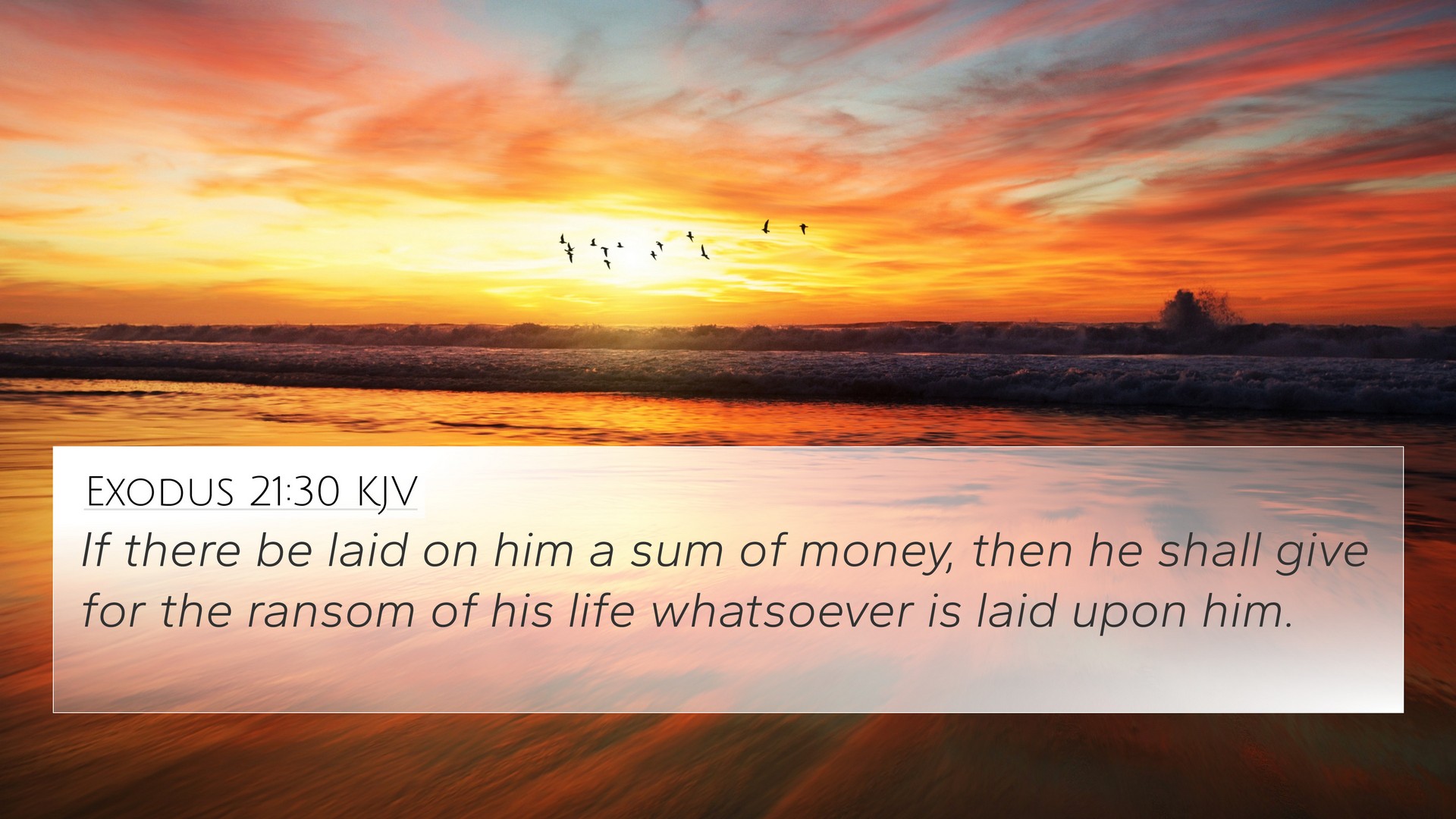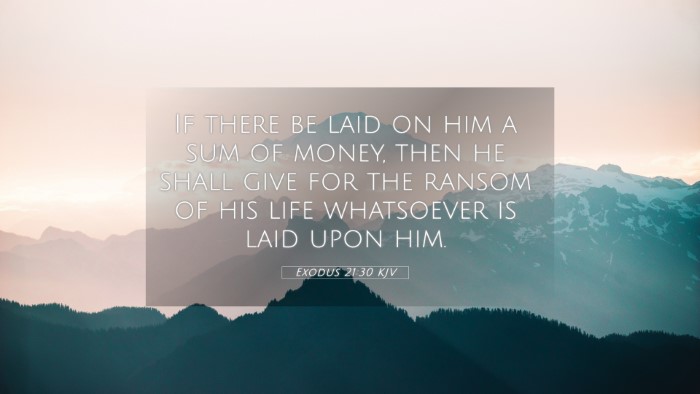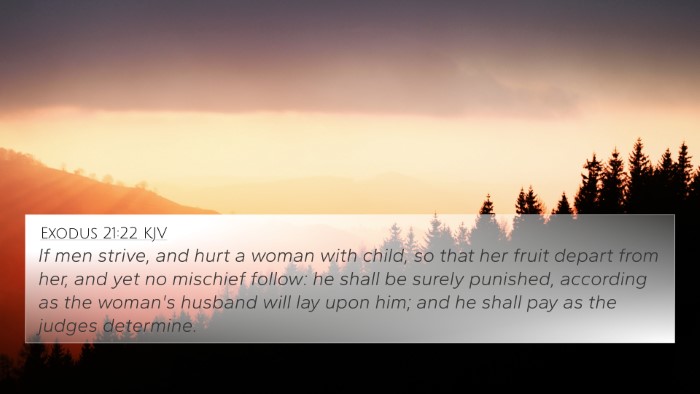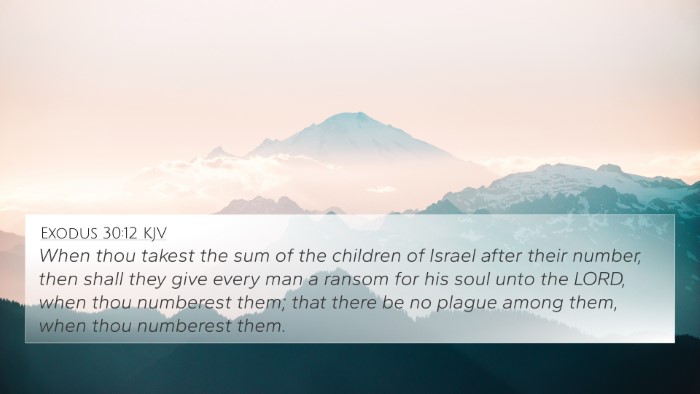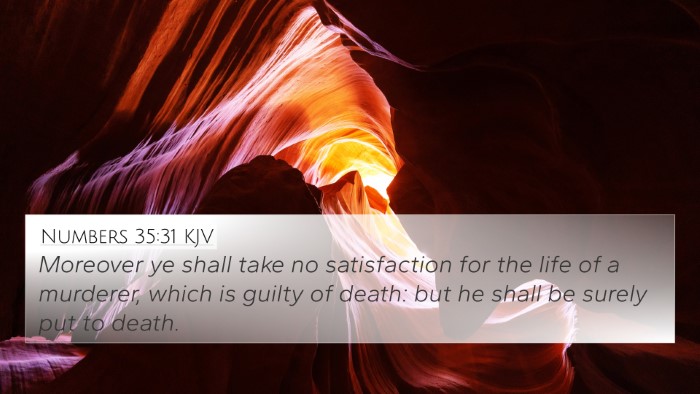Understanding Exodus 21:30
Exodus 21:30 states, "If there is a ransom, then he shall give for the redemption of his life whatever is laid upon him." This verse addresses the notion of life and justice in ancient Hebrew law, specifically dealing with scenarios involving responsibility and recompense for unintentional actions leading to harm or death.
Contextual Background
In the broader context of Exodus, Chapter 21 outlines various laws given to the Israelites concerning personal injury, property damage, and slavery. This portion of scripture serves to establish a legal framework that emphasizes justice, accountability, and restoration.
Insights from Commentators
-
Matthew Henry's Commentary:
Henry highlights the principle of proportional justice and the concept of ransom. This reflects God's justice and concern for human life, pointing out that the one responsible for an offense must make recompense that aligns with the nature of the offense committed.
-
Albert Barnes' Notes:
Barnes elaborates on the importance of this verse within the legal system of Israel, emphasizing the notion of life being held as precious. He draws parallels with the New Testament concepts of redemption, suggesting a foundational teaching on compromise and restitution.
-
Adam Clarke's Commentary:
Clarke focuses on the role of ransom in this verse, explaining it in detail as a means to restore justice and rectify wrongs. He also reflects on the similar themes found in other Biblical passages pertaining to justice and mercy.
Bible Verse Cross-References
This verse can be cross-referenced with several others to deepen understanding and situate its meaning within the larger Biblical narrative. Below are some of the key connections:
- Leviticus 24:18: "And whoever kills an animal must make it good, animal for animal." This refrain echoes the theme of restitution.
- Numbers 35:31: "You shall accept no ransom for the life of a murderer who is guilty of death." Highlights the irredeemability of certain actions.
- Exodus 30:12: "When you take a census of the Israelites to count them, each one must pay the LORD a ransom for his life at the time he is counted." Links to the idea of atonement and accountability.
- Matthew 5:38-39: "You have heard that it was said, 'Eye for eye, and tooth for tooth.' But I tell you, do not resist an evil person." Reflects Jesus' teaching on justice and mercy.
- Romans 3:23-24: "For all have sinned and fall short of the glory of God, and are justified freely by his grace through the redemption that came by Christ Jesus." Introduces the New Testament concept of redemption applicable to all believers.
- Galatians 3:13: "Christ redeemed us from the curse of the law by becoming a curse for us." This reinforces the concept of redemption through sacrifice.
- Hebrews 9:22: "In fact, the law requires that nearly everything be cleansed with blood, and without the shedding of blood, there is no forgiveness." Stresses the necessity of sacrifice for redemption.
Thematic Connections
The themes present in Exodus 21:30 encompass justice, mercy, accountability, and the serious nature of life and death situations. It serves as a vital piece within the framework of Biblical laws. The verse promotes an understanding of restitution and the principles of fair compensation.
Comparative Bible Verse Analysis
When analyzing Exodus 21:30 in conjunction with its biblical cross-references, one can observe how various texts elaborate on the principles of justice and redemption throughout the Bible. The connections between the Old and New Testaments provide a richer understanding of the moral and ethical dimensions of the laws given to Israel.
Usage in Study
For those undertaking Bible studies, employing a Bible concordance and cross-reference guide can illuminate the connections between Exodus 21:30 and other scriptures. Utilizing tools for bible cross-referencing will enhance your comprehension of similar themes in the biblical narrative.
Conclusion
Understanding Exodus 21:30 is crucial for engaging with the broader themes of justice and redemption in the Biblical context. By examining this verse alongside its cross-references, one can infer deeper spiritual meanings and appreciate the intricate weave of themes present in the scriptures.
